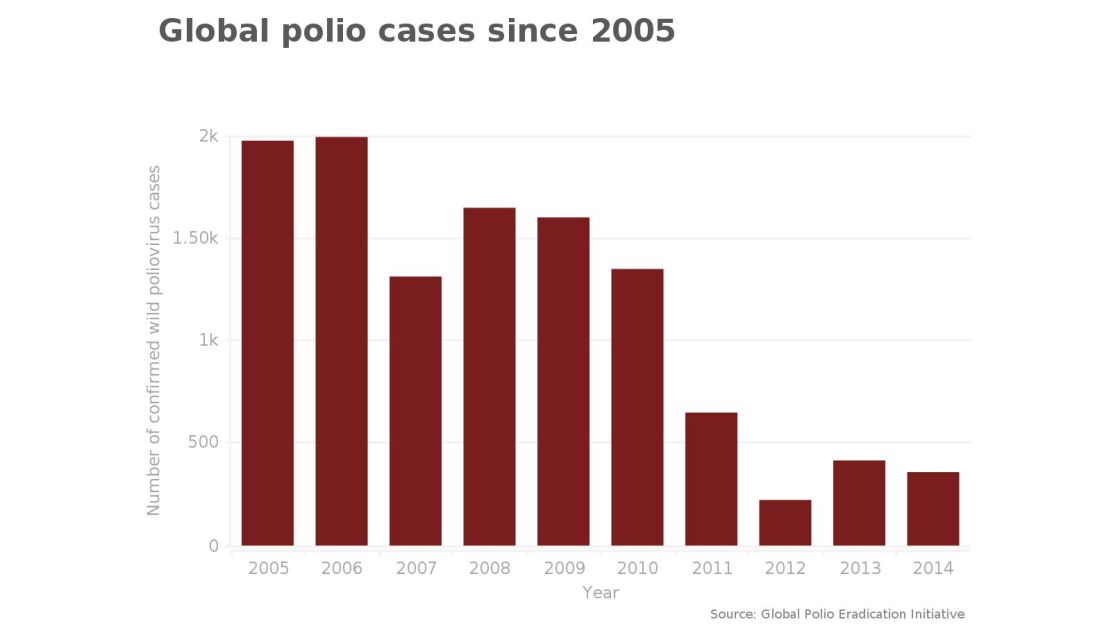Story highlights
Nigeria has not reported any new cases since last year
If it goes for two more years without new cases, it will be declared polio-free
Nigeria is no longer on the list of polio-spreading countries, bringing it a step closer to fully eradicating the paralyzing disease.
After concerted efforts and immunization drives, Nigeria has not reported any new cases since July last year, the World Health Organization said Friday.
More than 200,000 volunteers spread out in remote areas and braved attacks by militant group Boko Haram to immunize 45 million children under age 5.
It paid off.
“All laboratory data have confirmed a full 12 months have passed without any new case,” the WHO said.
Almost polio-free
If it goes for two more years without new cases, Nigeria will be officially declared free of the disease.
“Eradicating polio will be one of the greatest achievements in human history, and have a positive impact on global health for generations to come,” the WHO said. “Nigeria has brought the world one major step closer to achieving this goal.”
Pakistan, Afghanistan still endemic
Nigeria’s milestone leaves Pakistan and Afghanistan as the only two countries on the list of endemic nations, where polio transmission has never been interrupted.
Pakistan and Afghanistan also pose an immunization challenge because militant groups routinely attack polio workers and have banned polio immunization in some areas.
“The eradication of polio globally now depends primarily on stopping the disease in these countries,” the WHO said.

Major milestone
Just three years ago, Nigeria accounted for more than half the polio cases worldwide.
“Stopping polio in Nigeria has been a clear example that political engagement, strong partnerships and community engagement are the engines that drive the momentum of public health program, enabling them to achieve great things,” said Dr Matshidiso Moeti, WHO regional director for Africa.
The viral disease destroys nerve cells, and can cause lifelong paralysis in children. It is highly infectious and spreads through contaminated food and water.
While it is preventable through immunization, there’s no cure once it is contracted.



